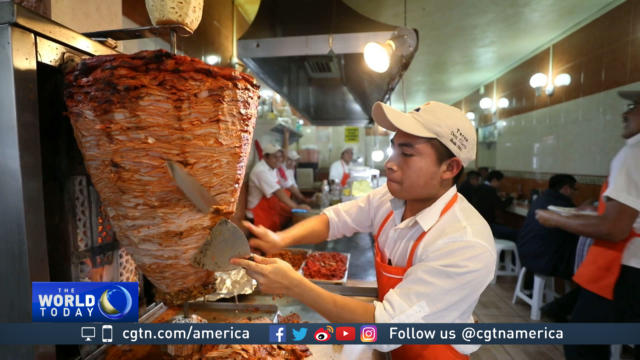Every month, more than 10,000 Mexicans are deported from the United States. Some of them have lived north of the border for decades, so re-integration can be difficult in a place that no longer feels like “home.”
But one restaurant in Mexico City sees these deportees as an important resource. CGTN’s Alasdair Baverstock reports.
Mexicans love to eat; and from street tacos to haute cuisine, the country’s capital is a world-renowned culinary destination.
But in recent years, Texas-style Barbeque, with its slow-cooked brisket and baby back ribs, has developed a loyal following.
It’s a culinary movement that has been led by a restaurant mischievously named ‘Pinche Gringo’ – loosely translated to mean: “Freakin’ American”.
“Mexicans love meat like brisket, but it’s very tough,” said Roberto Luna, the restaurant’s Mexican co-founder. “They have discovered through us that cooking it in this way makes it very delicious. It’s a delicious style of cooking, and quality food is what sells here in Mexico.”
“It doesn’t matter what its origins are,” he told CGTN. “If it’s delicious, it sells.”
But the restaurant’s popularity hasn’t just been thanks to its food; many of the staff that contribute to its down-home atmosphere come from the city’s sizeable deportee community.
One such example has been Hugo Hernandez, who has been part of Prinche Gringo since he was deported from the U.S. five years ago.
“When I wake up in the morning it’s like I’m really excited to come here to work, because if you are used to working in the States,” he told CGTN. “The culture here is different, you really feel like you’re working in the States, it’s pretty much the same.”
Thousands of Mexicans are deported from the United States every month, and many feel they’re rejected again when they attempt to fit into Mexican life.
“They make fun of your accent, the way you think, the way you dress, the way you behave or the way you see life overall. So it was shocking at the beginning,” said Hugo, as he served hungry customers from behind the canteen-style service system.
It was a problem Pinche Gringo’s American co-founder Dan Defossey saw that he could help.
“We’ve found that people who have experience working in the United States were a really good fit for our restaurant, because they feel at home,” he said. “Because what we’ve seen is that if you treat people with respect, in return they do really great things, and they provide a really great customer service that we’re looking for here at Pinche Gringo Barbeque.”
Dan has seven employees in all who left lives in America behind, finding haven in the restaurant – in a culture they recognize.
As American barbeque carves out a place in Mexico City cuisine, the deportees who have helped stage this culinary revolution hope that the blend of cultures will ease their own struggle for acceptance.
 CGTN America
CGTN America

